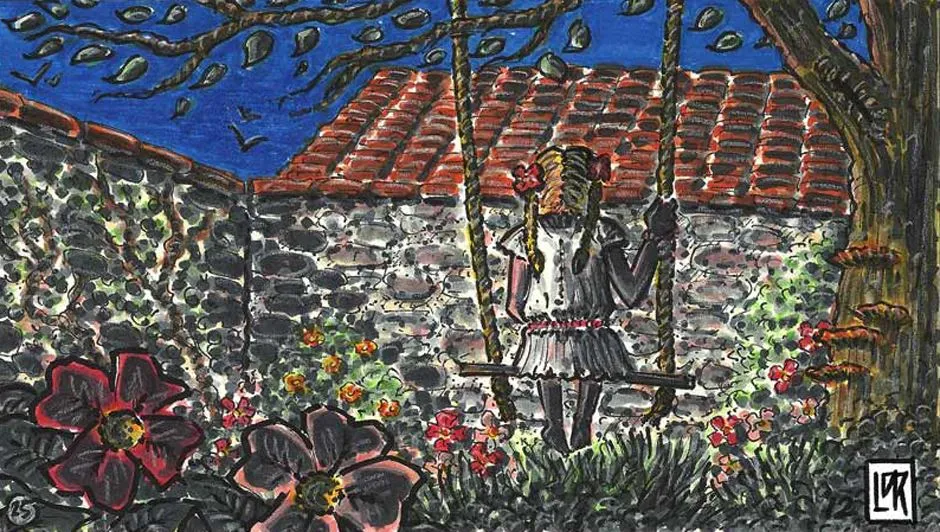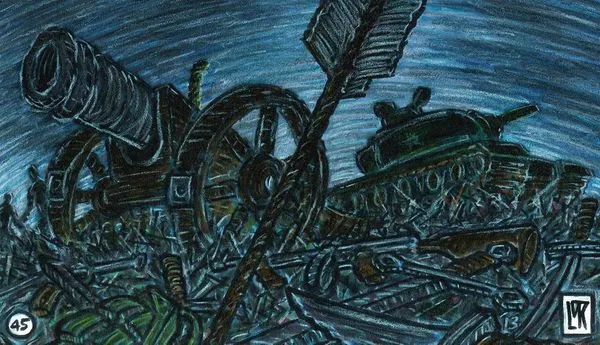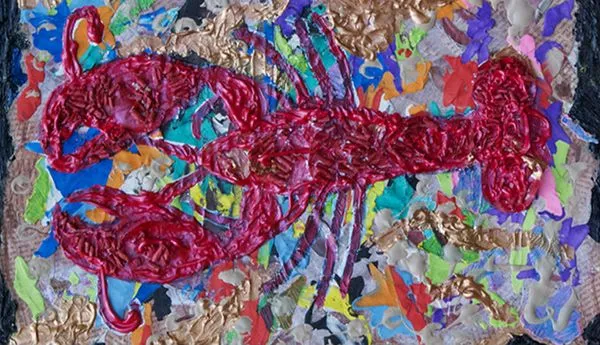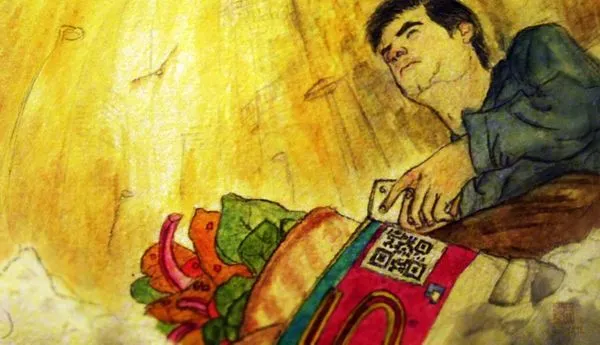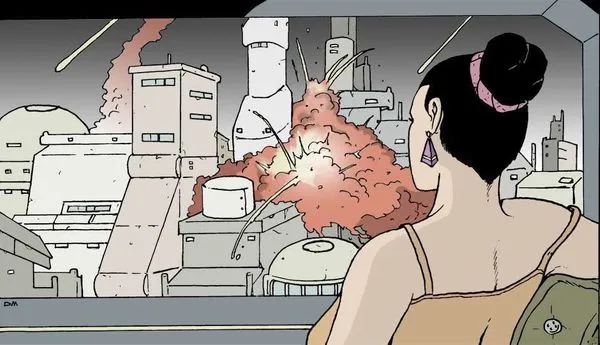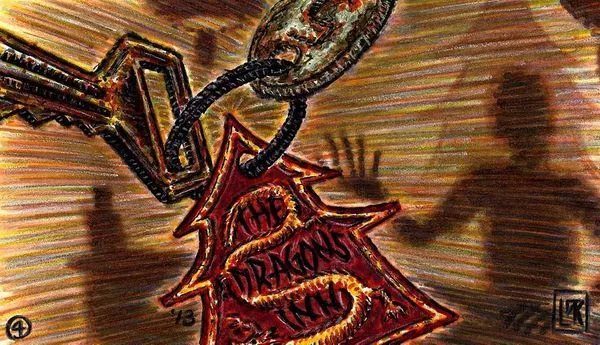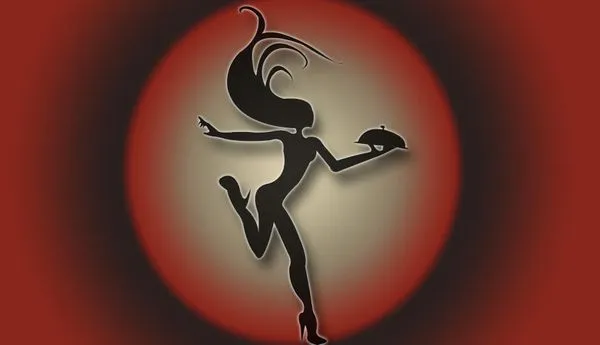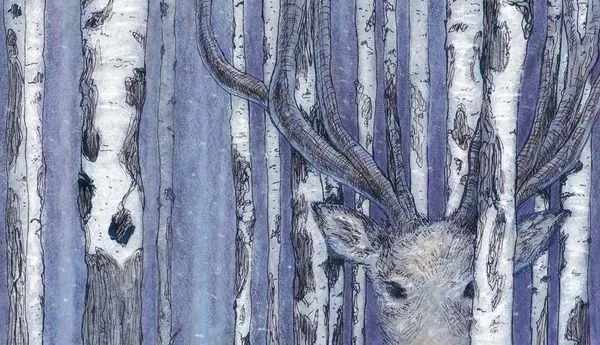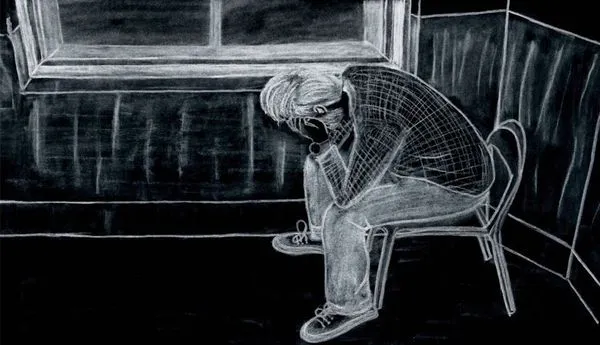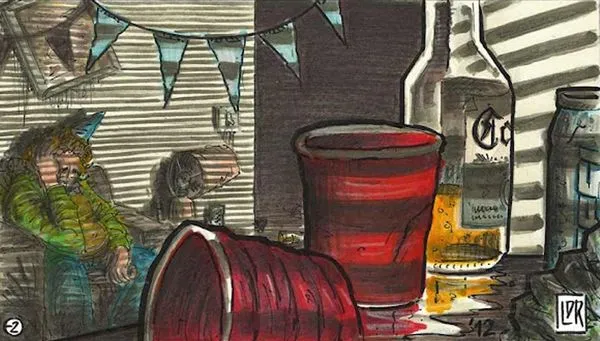The Weather Girl
Martin Hooijmans | Lars de Ruyter
Published on 2012-07-01
The town hall was filled to the brim with concerned citizens. Noblemen, servants, farmers, blacksmiths and seamstresses alike were huddled around the council, three ancient-looking men with long white beards. As always, they would know what was best for the village, but this did not stop any person with a voice to make their opinion known.
“I say send her away from the village!” a young and foolhardy groom, still smelling like the stables he tended to, shouted. “Nonsense! Like that is going to relieve her of the spell!” countered his mistress, a broad, kind-faced lady who ran the village’s inn. Next came the rat-faced teenage boy, self-proclaimed master of pranks, a title acknowledged by most. “If you let me, I have a whole assortment of nasty, hurtful jokes lined up for her. Believe me, after these, she will break like a dam made of glass!”
At this, Meriadan, oldest and wisest of the council, stood up and beckoned for silence. It came instantly. Respect for your elders was a hard principle in this community. His voice was severely timeworn, yet still held the strength and authority it had when he still counted himself among the young stallions. “That…is quite enough,” he began. “We have heard you, my people, and we have listened. Now listen to us.” Everyone in the crowd respectfully nodded, some more sincere than others. Meriadan smiled, then indicated a small man with dark, beady eyes to stand. He did so promptly, looked around and voiced what everyone had expected him to. “To the stake with her. Let her burn! Let the spell be passed on to the next!” At this a tumult started again in the crowd, the couple approvals drowned out by the outraged cries of the many. Meriadan allowed it to continue for a few moments, then once more beckoned for silence. As the doomsayer sat down, the next elder, a jolly looking man with dancing green specks in his blue eyes, rose and addressed the crowd. “The girl has not shed a tear for merely a year. Our supplies will not dwindle for another. She is happy, perhaps the happiest child if I have ever seen one. I ask you, grant her that happiness for a while longer. So much is already taken away from her.” At that he sat down, not awaiting a response the way his predecessor had. None came. Obviously, the crowd respected this man much more.
All gazes now turned to Meriadan, the only elder who had not spoken out towards the matter yet. He signaled a young nurse to come to him, whispered something in her ear, and stood silent as she scurried off through a plain door in the back of the hall. Everyone knew where that door led to, but still all gasped in amazement when moments later the nurse reappeared, holding the hand of the most precious little girl. At ten years of age, her beauty had already begun to blossom, her clear innocence floating as a near-visible shield in front of her. Her brown wavy hair shone like the water’s surface on a gentle Spring’s day, her bright blue eyes sparkled as if the stars had found a better home than the night sky, but what stood out the most was her smile. It was lovely. Lovelier than anyone had ever seen. And it never faltered. In fact, it only widened when Meriadan bent down to greet her, gently brushing her hair and smiling his fatherly smile. “Welcome, Vera,” he spoke. “Hello Meri,” she answered in her pleasant voice. “Why are you all inside? It’s such a lovely day!” Everyone knew that to her it had to seem that way. Her private quarters and private garden were always well-tended. She lived in a clean environment. Her food, the best, was brought to her. Her flowers always bloomed. Her trees never lost their leaves. She spent her days in a little paradise, the compensation for living in isolation. Vera was never to be harmed, and never to come to harm herself. Girls before her had coped with this isolation, but on certain days they had broken down, the feeling of loneliness overwhelming them. They had cried for two days, and always on the third day a selection of the sweetest children had been sent in for comfort and for play. The method had worked flawlessly for generations, until Vera had been born. As a little child she had already cried less frequently than the others, but as the wonders of her little world had taken hold, all tears had ceased, to the frustration of all villagers. Loneliness did not seem to bother the girl one bit.
Vera looked up puzzlingly at the fatherly elder. “Meri, why am I here?” Meriadan simply reached out his hand to her, which she took without question, then lead her through the crowd, towards the two great doors that barred a world she had never before laid eyes upon. As they walked, protests rose up from the crowd, all of which he ignored. “Vera,” he said softly, “it is time for you to learn.” He pushed open one of the doors and lead the way outside.
What Vera saw, astounded her. Indeed, the weather was lovely, but that was it. The luscious green grass she knew from her own paradise was brown and dead. The cows grazing on it looked famished to the point of toppling over. In the distance, fields that were supposed to appear gold with grain were black and empty. It was a different world. The real world. Reality. Tears formed in her eyes at the horror that lay in front of her, and instantly clouds appeared in the spotless blue sky.
“I thought it time for you to know,” Meriadan spoke gently. “No more lies. You are the weather girl. You bring life to our land.”
She had never known. She had lived in ignorance, which had been bliss. Bliss for her. Her musical voice trembled. “Why was I kept out of this? Why was I forced to spend my days alone?” The clouds darkened as the gentle wind grew in strength.
“It is tradition,” the old man answered. “It is the only way for the village to maintain a steady, healthy harvest. Or so we believed. You know now. And so you may prove us wrong.”
The first rain fell as the first tear hit the soil. Vera had been ripped out of her dream, out of her paradise, which all of a sudden seemed more like a nightmare. She found herself surrounded by the villagers, by her people, held in a warm embrace as the cold rain pounded upon the thankful dirt.
Reality had come with a bang. Her private reality had been shattered. It was more than anyone should have to take, but for Vera it wasn’t. She wasn’t lonely anymore, and the happiness she had always felt now felt like suppressed grief.
But she realized that her tears weren’t tears of grief. They were tears of happiness.
And, like the rain, they tasted sweet.
**

